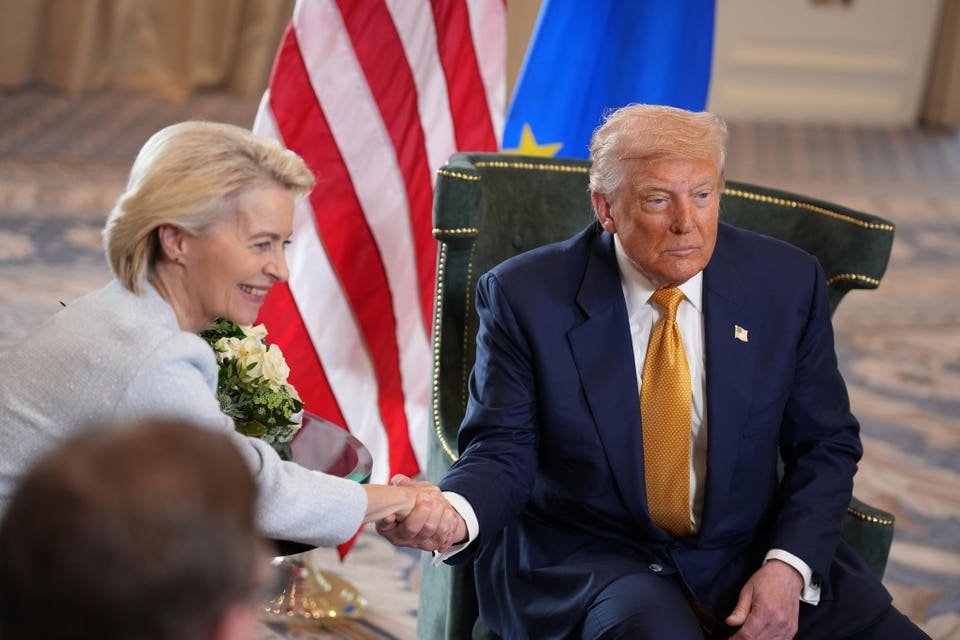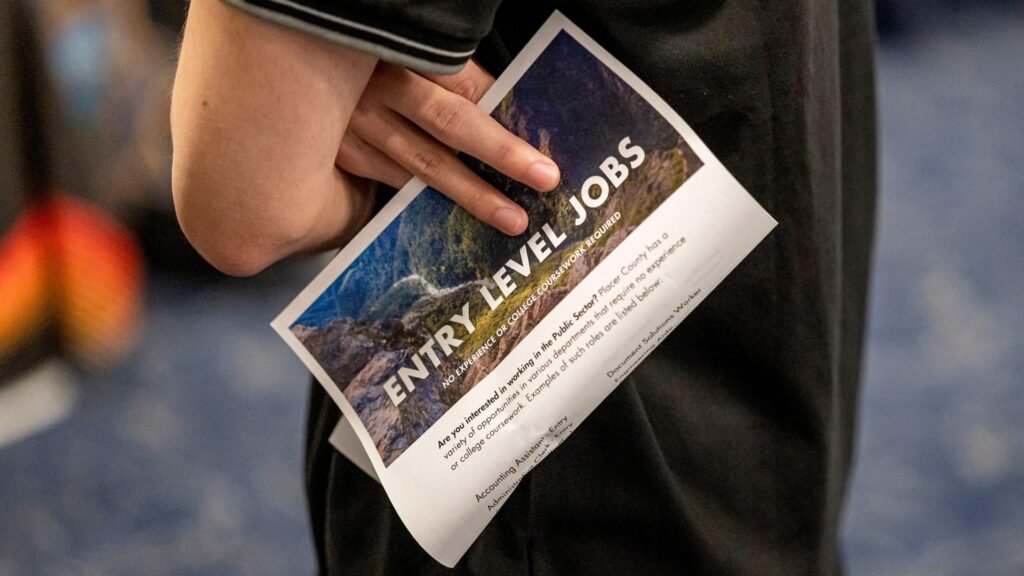
In 2024, the European Union passed legislation requiring companies to exert a high level of “due diligence” to ensure that companies in the value chain met sustainability standards. The law opened the door for class action lawsuits for human rights violations, environmental damages, and the cost of climate change. Businesses became concerned the legal liabilities and reporting requirements will be overly burdensome. During recent trade negotiations, Trump highlighted U.S. business concerns, including it as a requirement for a trade agreement.
As part of the EU Green Deal, the EU adopted a series of directives to force businesses to address climate change and report greenhouse gas missions. The CSRD created requirements for businesses to report GHG emissions and other environmental, social, and governance actions. The CSDDD created additional reporting requirements, as well as legal liability, for companies in relation to their supply chain. These requirements alarmed certain U.S. based companies who could be impacted both directly and indirectly.
The cost of these proposals on businesses and the possible impact on the EU economy became a theme during the 2024 European Parliament elections. The shift to the right in EU politics embolden opponents to the European Green Deal directives. As a result, the Commission proposed a package of new directives to “reduce the burden” on businesses. The Omnibus Simplification Package was officially adopted by the Commission in February.
Once legislation is proposed by the Commission, the Parliament and the Council adopt positions. The Council announced their position in June. The Parliament is actively engaged in the process to adopt their position.
The current CSDDD requires companies to execute due diligence in ensuring that businesses along the value chain are in compliance with environmental and human rights requirements. The Parliament is debating changed to reporting thresholds and obligations of non-EU companies. Once the Parliament adopts their proposal in October, the will enter into negotiations with the Commission and Council to reach a final draft.
For U.S. businesses, this is the opportunity to voice their concerns. The election of a like minded President gave them a powerful ally. Trump’s early engagement in renegotiating trade agreements presented the forum.
In April, Trump announced his intent to modify reciprocal tariff rates. This appeared to be a negotiation tactic, opening the door for reforms in trade agreements that some view as unfavorable to the U.S. Trump proposed a 30% tariff on the EU. Initially, EU leaders pushed back, but eventually trade talks began. At the end of July, Trump met with EU President Ursula von der Leyen in Scotland. A month later, an initial trade agreement was reached. The agreement addressed multiple trade topics, including the CSDDD.
In a joint statement, released on August 21, the U.S. and the EU announced a Framework on an Agreement on Reciprocal, Fair, and Balanced Trade. Addressing the CSDDD, the stated:
“The European Union commits to undertake efforts to ensure that the Corporate Sustainability Due Diligence Directive (CSDDD) and the Corporate Sustainability Reporting Directive (CSRD) do not pose undue restrictions on transatlantic trade. In the context of CSDDD, this includes undertaking efforts to reduce administrative burden on businesses, including small- and medium-sized enterprises, and to propose changes to the requirement for a harmonised civil liability regime for due diligence failures and to climate-transition-related obligations. The European Union commits to work to address US concerns regarding the imposition of CSDDD requirements on companies of non-EU countries with relevant high-quality regulations.”
The promise to “reduce the administrative burden on businesses” has been a recurring theme of von der Leyen’s second term and a driving motivation for reforms pushed by the European People’s Party.
Sustainability advocates quickly decried the agreement as the EU bending to the will of Trump. However, an accompanying Q&A provided by the Commission rolls back the promises, but opens the door to reforms.
“Questions and answers on the EU-US Joint Statement on Transatlantic Trade and Investment” was published on the EU Commission’s website on August 21, but went relatively unnoticed until highlighted by ESG Dive and Responsible Investor.
Addressing the deal to address the CSDDD, the Q&A clarified the Commission “agreed to exchange views with the US on CSDDD related issues. The guiding principle of our
discussions with the US has been to ensure that the Directive does not result in an unnecessary administrative burden, especially for small and medium size companies.”
Further, it stated “This cooperation does not lead to any changes to EU domestic rules nor will we grant US companies more favourable treatment under this Regulation or any EU Regulation.”
While this may provide hope to sustainability advocates, the language is carefully crafted. While it excludes the idea that the U.S. companies will get favorable treatment, it does not prohibit the exclusion of all non-EU based companies from CSDDD requirements. In fighting for U.S. business, Trump may end up with a win for all international companies.
Notably absent from the Q&A was any reference to the CSRD that, in its current form, will impose sustainability reporting requirements on non-EU companies. However, the CSRD is currently being rewritten as part of the simplification process with a significant reduction in impact on U.S. based companies. This may indicate that Trump’s goals for sustainability reporting requirements align with the current proposal.
How Trump’s concerns relating to the Corporate Sustainability Due Diligence Directive will impact the debate is unclear. They will most likely not be directly addressed in the negotiations in the Parliament. Focus will remain on helping EU businesses. U.S. concerns will probably be heard behind closed doors, during the trilogue negotiations, without any public comment or input. Expect to see them reflected in the final version adopted in December.
Money, /money, Business, /business, Law, /law, standard In 2024, the European Union passed legislation requiring companies to exert a high level of “due diligence” to ensure that companies in the value chain met sustainability standards. The law opened the door for class action lawsuits for human rights violations, environmental damages, and the cost of climate change. Businesses became concerned the legal liabilities and reporting requirements will be overly burdensome. During recent trade negotiations, Trump highlighted U.S. business concerns, including it as a requirement for a trade agreement.
As part of the EU Green Deal, the EU adopted a series of directives to force businesses to address climate change and report greenhouse gas missions. The CSRD created requirements for businesses to report GHG emissions and other environmental, social, and governance actions. The CSDDD created additional reporting requirements, as well as legal liability, for companies in relation to their supply chain. These requirements alarmed certain U.S. based companies who could be impacted both directly and indirectly.
The cost of these proposals on businesses and the possible impact on the EU economy became a theme during the 2024 European Parliament elections. The shift to the right in EU politics embolden opponents to the European Green Deal directives. As a result, the Commission proposed a package of new directives to “reduce the burden” on businesses. The Omnibus Simplification Package was officially adopted by the Commission in February.
Once legislation is proposed by the Commission, the Parliament and the Council adopt positions. The Council announced their position in June. The Parliament is actively engaged in the process to adopt their position.
The current CSDDD requires companies to execute due diligence in ensuring that businesses along the value chain are in compliance with environmental and human rights requirements. The Parliament is debating changed to reporting thresholds and obligations of non-EU companies. Once the Parliament adopts their proposal in October, the will enter into negotiations with the Commission and Council to reach a final draft.
For U.S. businesses, this is the opportunity to voice their concerns. The election of a like minded President gave them a powerful ally. Trump’s early engagement in renegotiating trade agreements presented the forum.
In April, Trump announced his intent to modify reciprocal tariff rates. This appeared to be a negotiation tactic, opening the door for reforms in trade agreements that some view as unfavorable to the U.S. Trump proposed a 30% tariff on the EU. Initially, EU leaders pushed back, but eventually trade talks began. At the end of July, Trump met with EU President Ursula von der Leyen in Scotland. A month later, an initial trade agreement was reached. The agreement addressed multiple trade topics, including the CSDDD.
In a joint statement, released on August 21, the U.S. and the EU announced a Framework on an Agreement on Reciprocal, Fair, and Balanced Trade. Addressing the CSDDD, the stated:
“The European Union commits to undertake efforts to ensure that the Corporate Sustainability Due Diligence Directive (CSDDD) and the Corporate Sustainability Reporting Directive (CSRD) do not pose undue restrictions on transatlantic trade. In the context of CSDDD, this includes undertaking efforts to reduce administrative burden on businesses, including small- and medium-sized enterprises, and to propose changes to the requirement for a harmonised civil liability regime for due diligence failures and to climate-transition-related obligations. The European Union commits to work to address US concerns regarding the imposition of CSDDD requirements on companies of non-EU countries with relevant high-quality regulations.”
The promise to “reduce the administrative burden on businesses” has been a recurring theme of von der Leyen’s second term and a driving motivation for reforms pushed by the European People’s Party.
Sustainability advocates quickly decried the agreement as the EU bending to the will of Trump. However, an accompanying Q&A provided by the Commission rolls back the promises, but opens the door to reforms.
“Questions and answers on the EU-US Joint Statement on Transatlantic Trade and Investment” was published on the EU Commission’s website on August 21, but went relatively unnoticed until highlighted by ESG Dive and Responsible Investor.
Addressing the deal to address the CSDDD, the Q&A clarified the Commission “agreed to exchange views with the US on CSDDD related issues. The guiding principle of our
discussions with the US has been to ensure that the Directive does not result in an unnecessary administrative burden, especially for small and medium size companies.”
Further, it stated “This cooperation does not lead to any changes to EU domestic rules nor will we grant US companies more favourable treatment under this Regulation or any EU Regulation.”
While this may provide hope to sustainability advocates, the language is carefully crafted. While it excludes the idea that the U.S. companies will get favorable treatment, it does not prohibit the exclusion of all non-EU based companies from CSDDD requirements. In fighting for U.S. business, Trump may end up with a win for all international companies.
Notably absent from the Q&A was any reference to the CSRD that, in its current form, will impose sustainability reporting requirements on non-EU companies. However, the CSRD is currently being rewritten as part of the simplification process with a significant reduction in impact on U.S. based companies. This may indicate that Trump’s goals for sustainability reporting requirements align with the current proposal.
How Trump’s concerns relating to the Corporate Sustainability Due Diligence Directive will impact the debate is unclear. They will most likely not be directly addressed in the negotiations in the Parliament. Focus will remain on helping EU businesses. U.S. concerns will probably be heard behind closed doors, during the trilogue negotiations, without any public comment or input. Expect to see them reflected in the final version adopted in December.
Adblock test (Why?)
Forbes – Business



